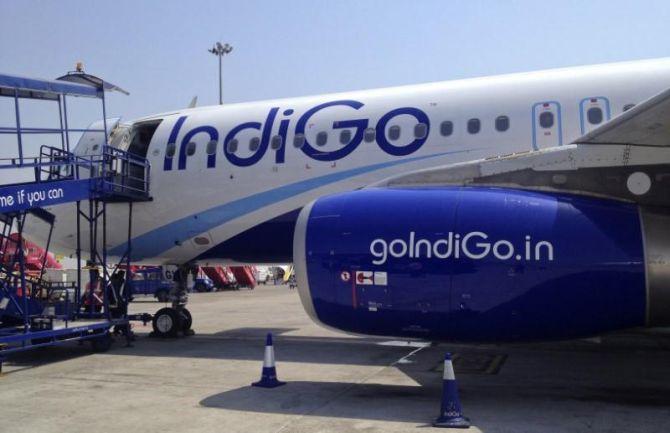With this, the biggest buyer of Airbus SE A320neo planes seems to be moving away from Pratt & Whitney engines, which have been experiencing glitches.
CFM International will deliver the first engine by 2020.

IndiGo has ordered jet engines worth $20 billion from a joint venture of General Electric, US, and France’s Safran SA, the low-cost airline announced on Monday.
With this, the biggest buyer of Airbus SE A320neo planes seems to be moving away from Pratt & Whitney engines, which have been experiencing glitches.
The order for 280 engines to power Airbus A320neo and A321neo aircraft will include service and maintenance, the airline’s statement said.
CFM International, the GE-Safran venture, will deliver the first engine by 2020.
This was first reported by Business Standard in its May 30 edition.
“We are pleased to partner with CFM for our next batch of Airbus A320neo and A321neo aircraft,” said Riyaz Peermohamed, chief aircraft acquisition and financing officer, IndiGo.
He added, “The CFM LEAP engine will allow IndiGo to maintain its strong focus on lowering operating costs and delivering fuel efficiency with high standards of reliability.
"This new partnership will allow IndiGo to continue to provide affordable fares to its customers.”
The order is a blow to Pratt, a division of United Technologies, which has grappled with delivery delays and groundings in India after spending $10 billion to develop its fuel-efficient geared turbofan for single-aisle jets.
The new deal strengthens CFM’s presence in India, the world’s fastest growing aviation market last year.
The local affiliate of Singapore Airlines and state-run Air India are already using its turbines.
A move by IndiGo, Asia’s biggest budget carrier by market value, to CFM would be a key reputational negative for Pratt’s geared turbofan and could hurt future sales campaigns.
Since induction in 2016, Pratt & Whitney engines have faced multiple issues, primarily because of design flaws that have grounded planes, delayed deliveries, and prompted hundreds of millions of dollars in compensation claims.
Operational problems stretched from long engine start up time delaying turnaround of aircraft, problems with the seal of the engine and durability issues with the turbine blades.
The situation turned worse in March 2018 when Indian aviation regulator the Directorate General of Civil Aviation grounded 11 A320 Neo aircraft including eight of IndiGo.
The regulator had heightened scrutiny on the turbines leading to higher removal of engines, which caused a shortage of spare engines and forced planes to be grounded till October last year.
“Pratt’s GTF engine has been fantastic for operators in terms of fuel efficiency, reducing fuel burn by almost 16 per cent.
"But A320 Neo operators across the world feel that the stabilisation period for this engine has been far longer than initially promised.
"Since there is an option, airlines will naturally weigh that,” said an industry source.
Photograph: Vivek Prakash/Reuters












 © 2025
© 2025